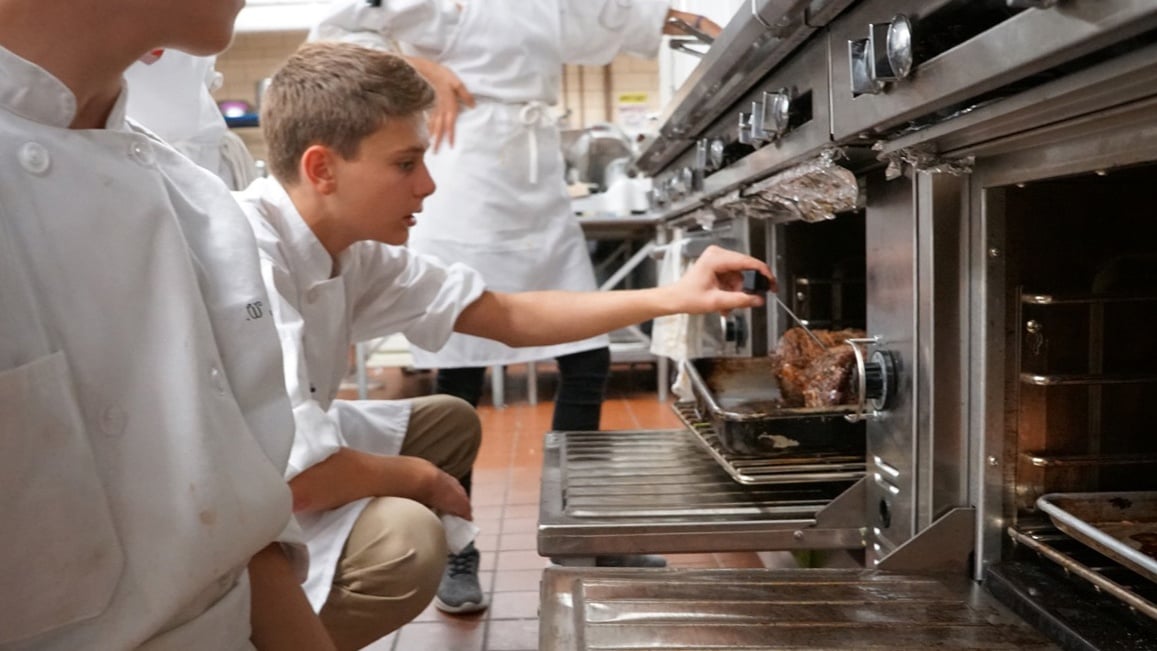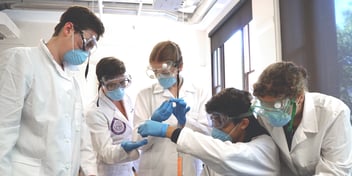EXPLO Culinary Arts: Becoming a Master Chef

Is two weeks really enough time to learn how to cook like a professional chef? Yes, yes it is. In fact, judging by the spread laid out by 30 young chefs, it only takes one.
Carrot cake muffins with cream cheese frosting. Salmon teriyaki with a mango salsa and salmon filets with a ginger glaze. Chocolate mousse cupcakes with a vanilla custard swirl. Pasta carbonara. Chocolate ganache cupcakes with vanilla frosting and a dousing of sprinkles. Seared flank steak with roasted peppers. Lemon chiffon white chocolate cupcakes. And a light and refreshing lemongrass and ginger-infused lemonade to wash it all down with.
In the professional kitchens at Newbury College, students don’t dawdle over their recipes. They button up their jackets, roll up their sleeves, and get to work. Pans come down off the shelves and land on burners with a satisfying (but not too loud) bang, and students learn the finer points of stirring the ingredients in one pan while quickly flipping those in another.
“These students are incredible,” Jerome Picca, master chef, says. “Between this year and last year, I couldn’t begin to say which group is more talented or enthusiastic. You can see it in every dish they produce and I can hear it in every question they ask. They want to know everything there is to know about cooking and plating — and they truly are creative! Every dish here is their individual creations.”
Crossing from the hot food section of the kitchen to baking, the pungent aroma of sauteing onions muscles into the sweet, homey smells of freshly-baked cupcakes. In one corner, the summery scent of basil in a pasta dish gives way to the heady mix of ginger, orange and mango complimenting a salmon filet. And in the other, a plate of still-warm lemon-white chocolate cupcakes perfumes an already aromatic, sizzling flank steak.
“At home,” Samarra, a student, says, “I thought I knew how to cook. I mean, I love it, which is why I knew I had to come to this program. But now, I really know how to cook! I love every minute of this.”
Even the cleaning. Because that, she says, means everything is ready for use the next day.
So that means that over every countertop dusting of flour, butter, and oil, a sponge is sure to follow. Because after all the preparations — and the feasts to follow — no chef worth her (or his) salt would ever leave a kitchen in a state other than how he (or she) found it that morning. And everyone in these kitchens can claim that title as their own.


